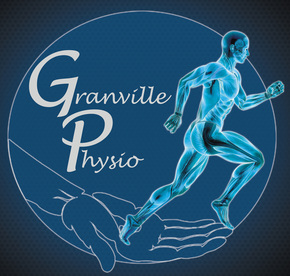You are what you eat is something we’ve all heard. But did you know that eating the right foods after injury or post-surgery can help you recover more quickly?
Eating the right foods can help speed up the healing process and decrease any potential swelling, bruising, and/or inflammation that may have occurred as a result of the injury.
So what are the best foods to eat after injury or surgery?
Eating the right foods can help speed up the healing process and decrease any potential swelling, bruising, and/or inflammation that may have occurred as a result of the injury.
So what are the best foods to eat after injury or surgery?
Lean Protein
Collagen is the most abundant protein in the human body and plays an important role in knitting damaged/torn tissue back together. This is especially important when healing cuts or incisions. Generally, it is recommended that people consume 0.8 grams of protein per kilogram of body weight but these numbers should increase after injury as demands for protein will be significantly higher. You should aim to get 1.5 to 2.0 grams of protein per kilogram of body mass.
Excellent lean protein sources include eggs, fish, turkey, legumes and beans.
Collagen is the most abundant protein in the human body and plays an important role in knitting damaged/torn tissue back together. This is especially important when healing cuts or incisions. Generally, it is recommended that people consume 0.8 grams of protein per kilogram of body weight but these numbers should increase after injury as demands for protein will be significantly higher. You should aim to get 1.5 to 2.0 grams of protein per kilogram of body mass.
Excellent lean protein sources include eggs, fish, turkey, legumes and beans.
Fiber
A common condition post-surgery is constipation. This is due to side effects of pain medications, anesthesia, dehydration, changes to diet, stress and reduced physical activity. To maintain healthy eliminations, it is recommended to drink plenty of water and consume foods that are high in fiber.
Prunes are a rich source of both soluble and insoluble fiber which softens and adds bulk to stool.
Other foods include beans and legumes, apples, pears, bran flakes, oatmeal and flaxseed meal.
A common condition post-surgery is constipation. This is due to side effects of pain medications, anesthesia, dehydration, changes to diet, stress and reduced physical activity. To maintain healthy eliminations, it is recommended to drink plenty of water and consume foods that are high in fiber.
Prunes are a rich source of both soluble and insoluble fiber which softens and adds bulk to stool.
Other foods include beans and legumes, apples, pears, bran flakes, oatmeal and flaxseed meal.
Fermented Foods
It is standard protocol to be given antibiotics as a preventative measure before or during and sometimes after surgery. Antibiotics kill both pathogenic and beneficial bacteria in our digestive system. The problem with this is that since 75-80% of natural immunity resides in our digestive system, this actually reduces our natural protective barrier.
There are foods rich in probiotics and digestive enzymes you can eat to help keep your immune system integrity strong. Some of these include:
It is standard protocol to be given antibiotics as a preventative measure before or during and sometimes after surgery. Antibiotics kill both pathogenic and beneficial bacteria in our digestive system. The problem with this is that since 75-80% of natural immunity resides in our digestive system, this actually reduces our natural protective barrier.
There are foods rich in probiotics and digestive enzymes you can eat to help keep your immune system integrity strong. Some of these include:
- Yogurt
- Kefir (both dairy and water)
- Apple cider vinegar or other traditionally fermented vinegars
- Naturally fermented vegetables; sauerkraut, kimchee
- Fermented beverages; beet kvass, kombucha
- Fermented bean and legumes
- Naturally fermented chutneys and salsas
- Additionally, companies such as AOR provide well researched solutions to combat bad intestinal bacteria (fighting bacteria with bacteria) and good bacteria in the form of probiotics.
Deeply Coloured Fruits
The body is under constant oxidative stress but the stress of surgery or an injury, in addition to the drugs used during and after the procedure, further increases the stress placed on the body through free-radical production. Your body will naturally utilize antioxidants to combat these harmful molecules but the demands will be much higher post-injury or surgery.
Antioxidant intake can be substantially increased by eating deeply coloured fruits such as strawberries, raspberries, blueberries, cherries, and pomegranates. These fruits contain anthocyanidins, which are compounds that enhance the effects of Vitamin C, as well as improve the integrity of your capillaries and stabilize collagen.
The body is under constant oxidative stress but the stress of surgery or an injury, in addition to the drugs used during and after the procedure, further increases the stress placed on the body through free-radical production. Your body will naturally utilize antioxidants to combat these harmful molecules but the demands will be much higher post-injury or surgery.
Antioxidant intake can be substantially increased by eating deeply coloured fruits such as strawberries, raspberries, blueberries, cherries, and pomegranates. These fruits contain anthocyanidins, which are compounds that enhance the effects of Vitamin C, as well as improve the integrity of your capillaries and stabilize collagen.
Vegetables & Orange-Coloured Fruits
Vitamin A is needed by the body for the repair and maintenance of soft tissue, mucus membranes, and skin and is thus, important when dealing with an injury.
Sweet potatoes, carrots, darky leafy greens like kale are excellent sources of beta carotene, or pro-vitamin A, which the body converts into Vitamin A as needed. Orange-coloured fruits such as cantaloupe, mango, and dried apricots are also exceptional sources of beta carotene.
Vitamin A is needed by the body for the repair and maintenance of soft tissue, mucus membranes, and skin and is thus, important when dealing with an injury.
Sweet potatoes, carrots, darky leafy greens like kale are excellent sources of beta carotene, or pro-vitamin A, which the body converts into Vitamin A as needed. Orange-coloured fruits such as cantaloupe, mango, and dried apricots are also exceptional sources of beta carotene.
Bell Peppers & Citrus Fruit
Vitamin C is a water-soluble vitamin that helps to cross-link collagen. As mentioned previously, collagen is a crucial protein to proper wound healing, especially if you have had an incision during surgical procedures. Stress also depletes Vitamin C stores so increasing your intake is highly recommended after surgery (up to 900 mg per day).
Excellent sources of Vitamin C are bell peppers (340 mg per medium pepper), papaya, broccoli, strawberries, citrus fruit, kiwis, and broccoli.
Vitamin C is a water-soluble vitamin that helps to cross-link collagen. As mentioned previously, collagen is a crucial protein to proper wound healing, especially if you have had an incision during surgical procedures. Stress also depletes Vitamin C stores so increasing your intake is highly recommended after surgery (up to 900 mg per day).
Excellent sources of Vitamin C are bell peppers (340 mg per medium pepper), papaya, broccoli, strawberries, citrus fruit, kiwis, and broccoli.
Cruciferous Vegetables
There is always the risk of infection after surgery and the best protection is to build up your immune system. Phytonutrients are natural compounds found in plant foods such as vegetables, fruit, whole grain product and legumes. There are many different phytonutrients and they have been shown to possess antioxidant properties, act as antibacterial or antiviral agents, and have positive effects on the immune system.
Foods rich in phytonutrients include dark green leafy vegetables (such as spinach, kale, bok choy), cabbage, brussel sprouts, and cauliflower.
There is always the risk of infection after surgery and the best protection is to build up your immune system. Phytonutrients are natural compounds found in plant foods such as vegetables, fruit, whole grain product and legumes. There are many different phytonutrients and they have been shown to possess antioxidant properties, act as antibacterial or antiviral agents, and have positive effects on the immune system.
Foods rich in phytonutrients include dark green leafy vegetables (such as spinach, kale, bok choy), cabbage, brussel sprouts, and cauliflower.
Nuts & Seeds
Zinc is necessary for proper immune system function. The body requires zinc to develop, mature and activate cells that are integral to the process of immunity. Furthermore, zinc is essential for wound healing as it is integral to protein synthesis and cell growth.
Sesame seeds, squash and pumpkin are excellent sources of zinc. Oysters have the highest concentration of zinc and red meats have some incredibly high concentrations as well.
Zinc is necessary for proper immune system function. The body requires zinc to develop, mature and activate cells that are integral to the process of immunity. Furthermore, zinc is essential for wound healing as it is integral to protein synthesis and cell growth.
Sesame seeds, squash and pumpkin are excellent sources of zinc. Oysters have the highest concentration of zinc and red meats have some incredibly high concentrations as well.
Inflammation & Eating
In a healthy body, inflammation is a normal and effective response that promotes healing. However, sometimes inflammation persists on a daily basis even when you are not injured or ill. This is when inflammation can become a problem. Many major diseases such as cancer, heart disease, diabetes, arthritis, depression, and Alzheimer’s, have been linked to chronic inflammation.
Studies have shown that certain foods and beverages have anti-inflammatory effects such as tomatoes, olive oil, green leafy vegetables, nuts, fatty fish and fruits. Conversely, there are some foods that can promote the inflammation response and should be limited as much as possible. These include refined carbohydrates (such as white bread and pastries), fried foods, soda and other sweetened beverages, red meats, processed meats, margarine, shortening and lard.
In a healthy body, inflammation is a normal and effective response that promotes healing. However, sometimes inflammation persists on a daily basis even when you are not injured or ill. This is when inflammation can become a problem. Many major diseases such as cancer, heart disease, diabetes, arthritis, depression, and Alzheimer’s, have been linked to chronic inflammation.
Studies have shown that certain foods and beverages have anti-inflammatory effects such as tomatoes, olive oil, green leafy vegetables, nuts, fatty fish and fruits. Conversely, there are some foods that can promote the inflammation response and should be limited as much as possible. These include refined carbohydrates (such as white bread and pastries), fried foods, soda and other sweetened beverages, red meats, processed meats, margarine, shortening and lard.
Once you’ve filled your shopping cart with these foods call into the clinic and let one of our expert physios help guide you back to a full recovery!
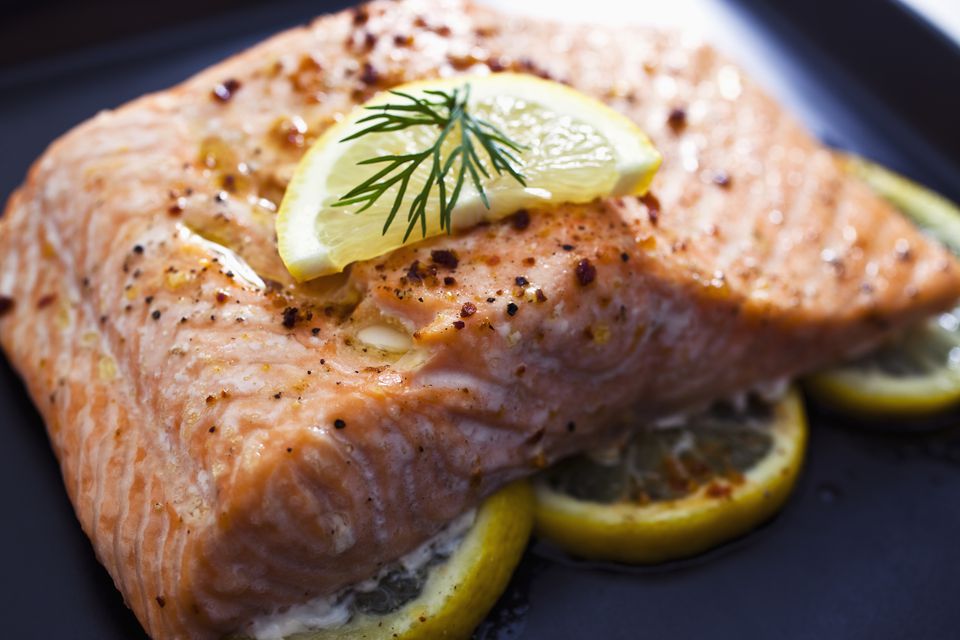
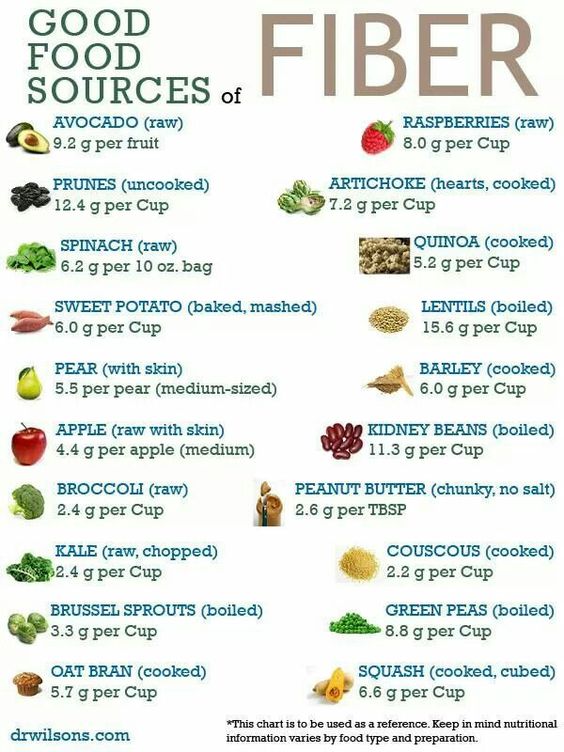
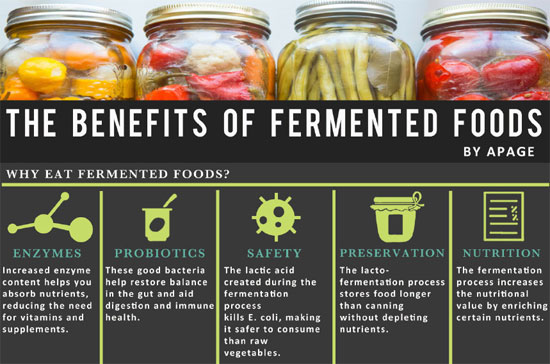
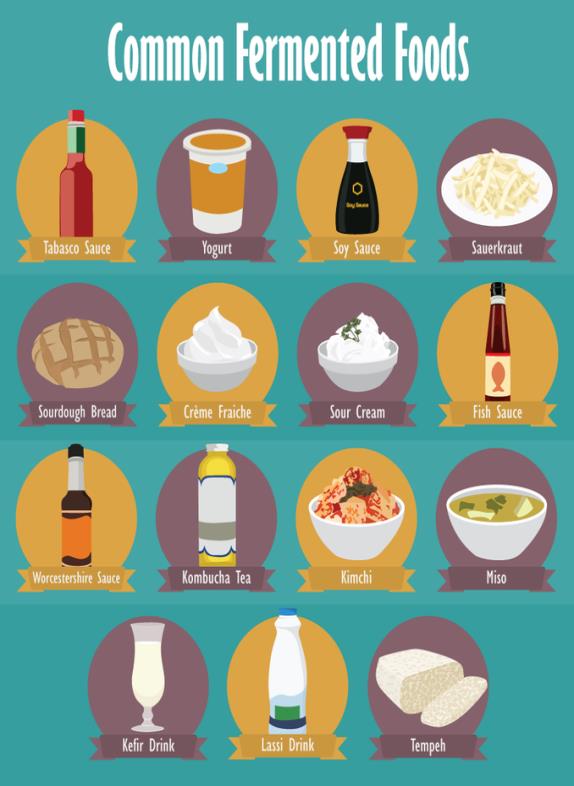
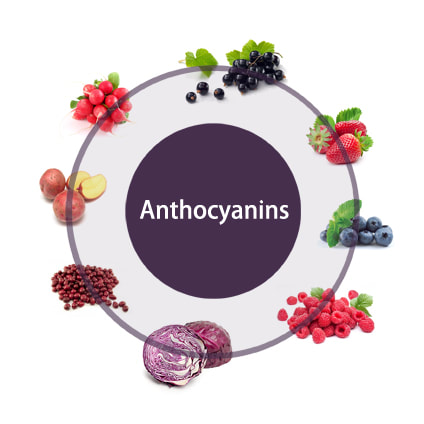
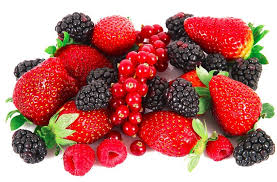
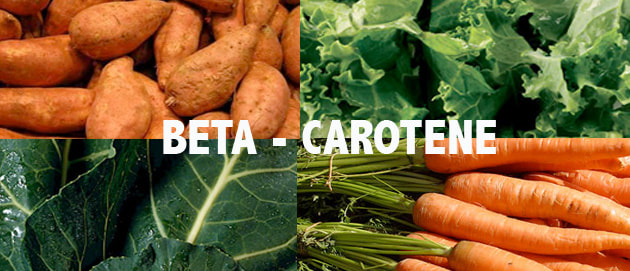
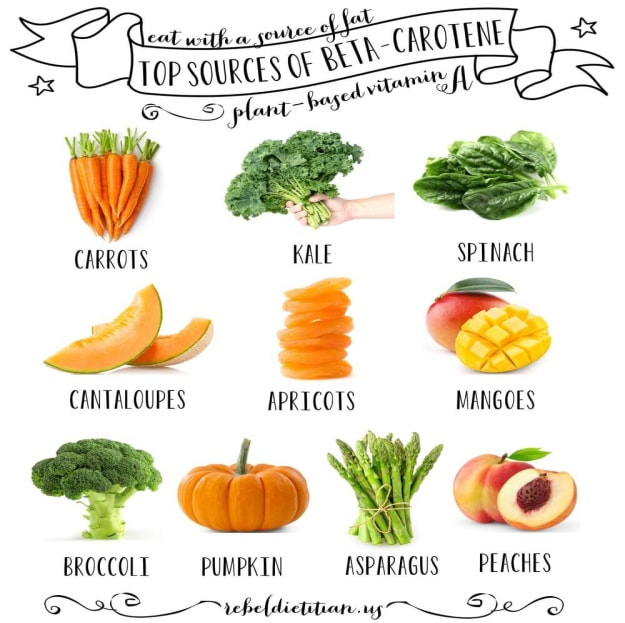
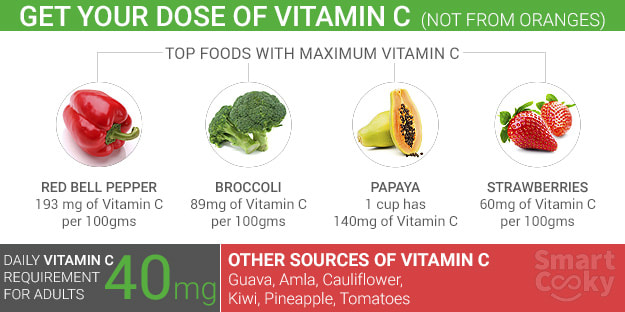
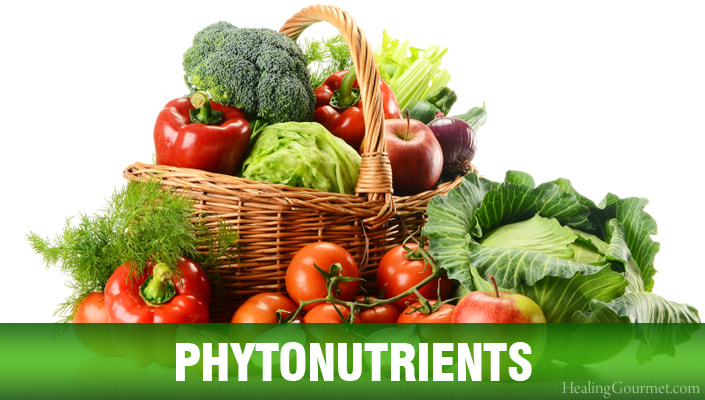
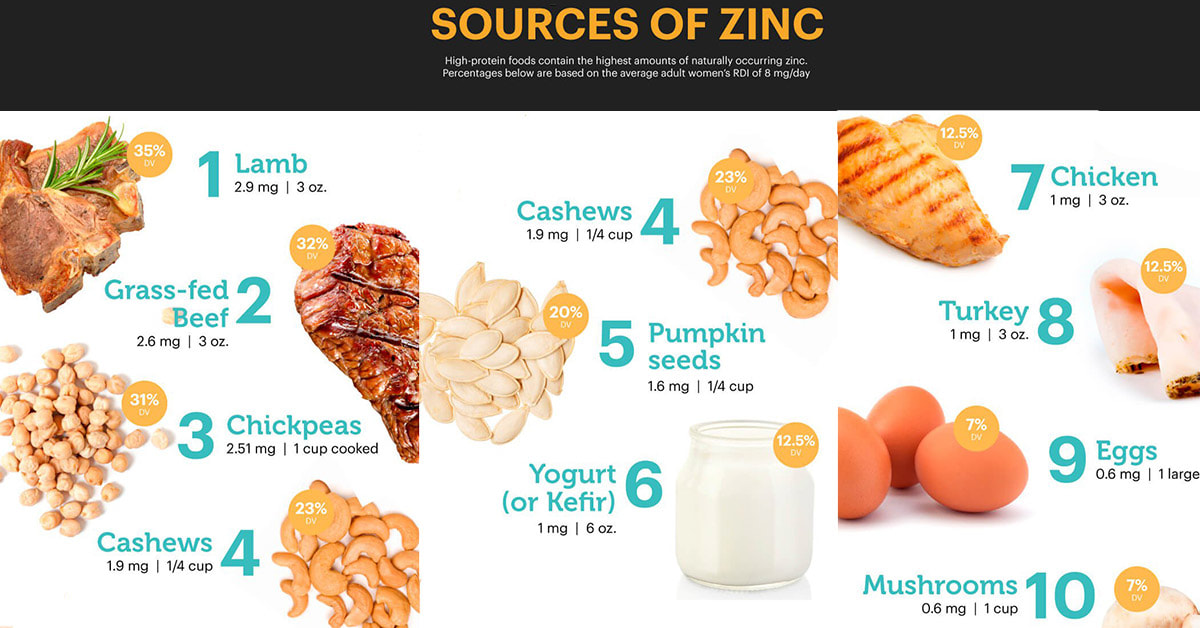
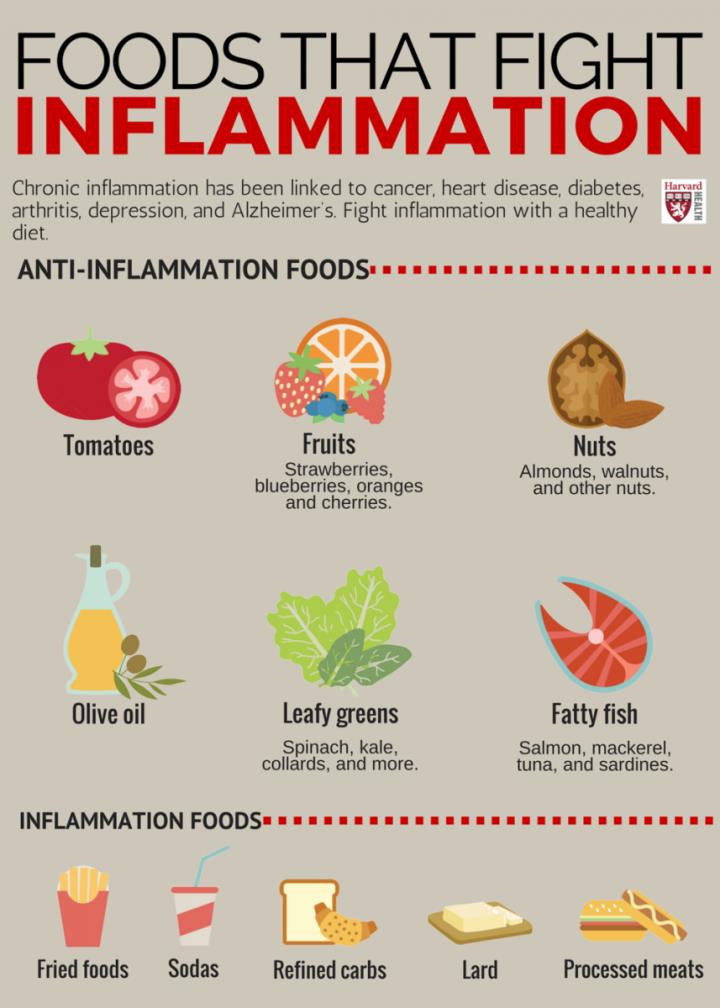
 RSS Feed
RSS Feed

